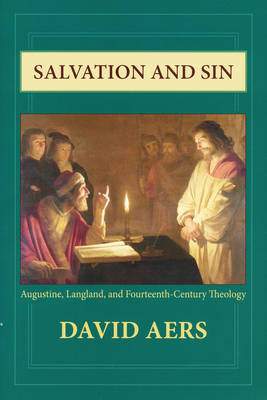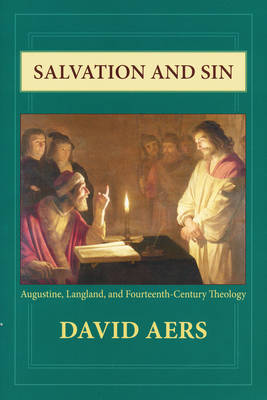
- Afhalen na 1 uur in een winkel met voorraad
- Gratis thuislevering in België vanaf € 30
- Ruim aanbod met 7 miljoen producten
- Afhalen na 1 uur in een winkel met voorraad
- Gratis thuislevering in België vanaf € 30
- Ruim aanbod met 7 miljoen producten
Salvation and Sin
Augustine, Langland, and Fourteenth-Century Theology
David AersOmschrijving
In Salvation and Sin, David Aers continues his study of Christian theology in the later Middle Ages. Working at the nexus of theology and literature, he combines formidable theological learning with finely detailed and insightful close readings to explore a cluster of central issues in Christianity as addressed by Saint Augustine and by four fourteenth-century writers of exceptional power.
Salvation and Sin explores various modes of displaying the mysterious relations between divine and human agency, together with different accounts of sin and its consequences. Theologies of grace and versions of Christian identity and community are its pervasive concerns. Augustine becomes a major interlocutor in this book: his vocabulary and grammar of divine and human agency are central to Aers' exploration of later writers and their works.
After the opening chapter on Augustine, Aers turns to the exploration of these concerns in the work of two major theologians of fourteenth-century England, William of Ockham and Thomas Bradwardine. From their work, Aers moves to his central text, William Langland's Piers Plowman, a long multigeneric poem contributing profoundly to late medieval conversations concerning theology and ecclesiology. In Langland's poem, Aers finds a theology and ethics shaped by Christology where the poem's modes of writing are intrinsic to its doctrine. His thesis will revise the way in which this canonical text is read. Salvation and Sin concludes with a reading of Julian of Norwich's profound, compassionate, and widely admired theology, a reading which brings her Showings into conversation both with Langland and Augustine.
Specificaties
Betrokkenen
- Auteur(s):
- Uitgeverij:
Inhoud
- Aantal bladzijden:
- 302
- Taal:
- Engels
Eigenschappen
- Productcode (EAN):
- 9780268204549
- Verschijningsdatum:
- 15/01/2022
- Uitvoering:
- Hardcover
- Formaat:
- Genaaid
- Afmetingen:
- 152 mm x 229 mm
- Gewicht:
- 612 g

Alleen bij Standaard Boekhandel
Beoordelingen
We publiceren alleen reviews die voldoen aan de voorwaarden voor reviews. Bekijk onze voorwaarden voor reviews.











